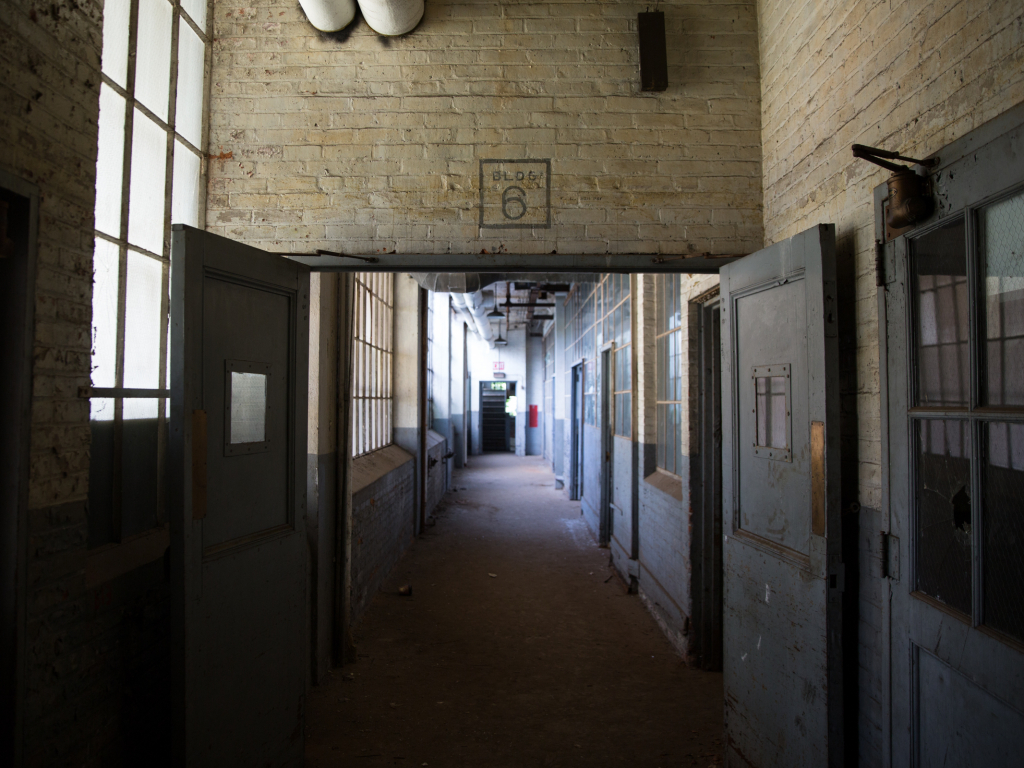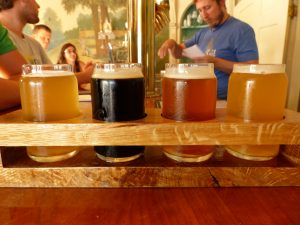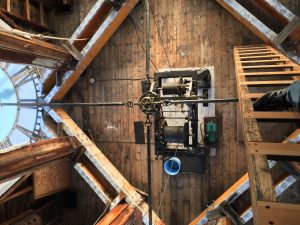Episode 61: Heart of Gold

New England communities prepare for an influx of hurricane refugees from Puerto Rico, and worry about family back home. We’ll learn what Germany can teach us about welcoming immigrants, and we’ll tour an old Hartford factory that’s preparing for a new life as a food and jobs hub for a struggling neighborhood. Plus, the craft beer industry is exploding in New England, but another time-honored trade is in danger of disappearing.
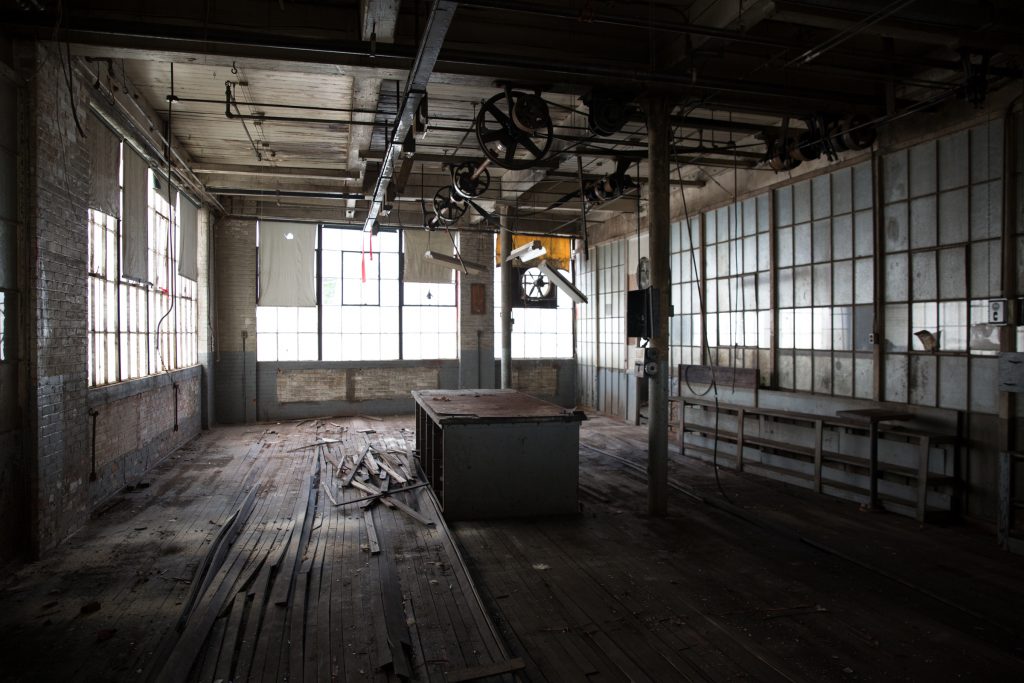
A scene from the Swift Factory, which manufactured gold leaf in Hartford from 1895 to 2005. The nonprofit that owns the building hopes to house food operations, a health center, and more. Photo by Ryan Caron King for NEXT.
In the News: Hurricane Survivors, Healthcare Laws, Racism
There are over 600,000 Puerto Ricans living in New England, and many are struggling to get ahold of loved ones there after the devastation left by Hurricane Maria. WNPR’s Ryan Caron King spoke with one Hartford, Connecticut resident.
In the city of Holyoke, Massachusetts, 80 percent of public school students are of Puerto Rican descent. As people try to flee the island, the district is expecting an influx of new students, as Jill Kaufman reports.
We’d love to hear from you if you’re still trying to reach loved ones or get help to Puerto Rico. Leave a note on our Facebook page or tag us on Twitter.

Maine Republican Senator Susan Collins in Lewiston, Maine in August. Photo by Robert F. Bukaty for Maine Public
Maine Senator Susan Collins announced earlier this week that she would vote against the Graham-Cassidy healthcare bill, killing the latest Republican attempt to repeal and replace the Affordable Care Act. It’s not the first time she has broken with leaders in the GOP, and it’s a reminder that the independently-minded “Yankee Republican” isn’t extinct.
But who is Collins, and how is she regarded back home? Our guest Steve Mistler is the Chief Political Correspondent for Maine Public Radio, and a close Collins-watcher.
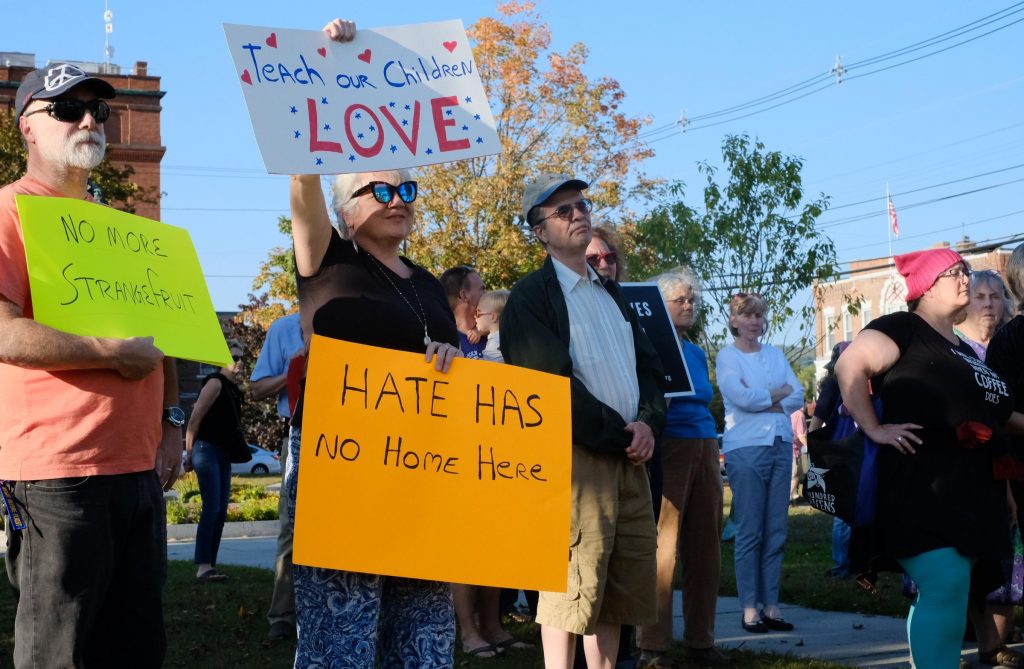
Residents of Claremont, Nh. gathered earlier this month for a vigil following news of an alleged lynching-style attack of a young biracial boy in town. Photo by Britta Greene for NHPR
Claremont, New Hampshire is still reeling from an incident involving a young biracial boy and a group of teenagers. The victim’s family says it’s an open-and-shut case of racism: an attempted lynching. Parents of a teenager involved in the incident say that’s not what happened. They say the kids were playing with a rope and climbing trees when things went wrong. As Britta Greene reports, The incident has divided the community.
Turning Over a New Leaf
Many New England cities used to be manufacturing hubs. Workers lived near where they worked, and supported the other businesses that sprung up around them.
Today, old factories are puzzles to solve. Some retain a bit of small manufacturing — others are converted into high-end lofts, artists’ studios, and even world-class art museums, like MassMoCA in North Adams, Massachusetts.
The building that housed the Swift Factory is tucked into a residential section of Hartford’s Northeast neighborhood.
Gold leaf, a thin, paper-like gold product, was manufactured there for over 100 years. Leaf produced at Swift adorned the dome atop the Connecticut capitol building, and decorated the lettering on the sides of local fire trucks.
The company was owned by a white family, the Swifts. And the neighborhood, which had mostly white immigrant residents early in the 1900s, gradually became African-American and West Indian. It still is today.
The Swift Factory closed in 2005. A nonprofit called Community Solutions took ownership in 2010, and surveyed the neighborhood to figure out what to do with the site.
Sometimes, a factory renovation can be an early sign of gentrification. But the plans for this particular building are a response to the needs and desires of the people already living here, representatives say.
On a factory tour this summer, we learned about what’s to come. We also got a sense of what factory life was like from a woman who experienced it firsthand.
How Does Germany Handle Refugees?
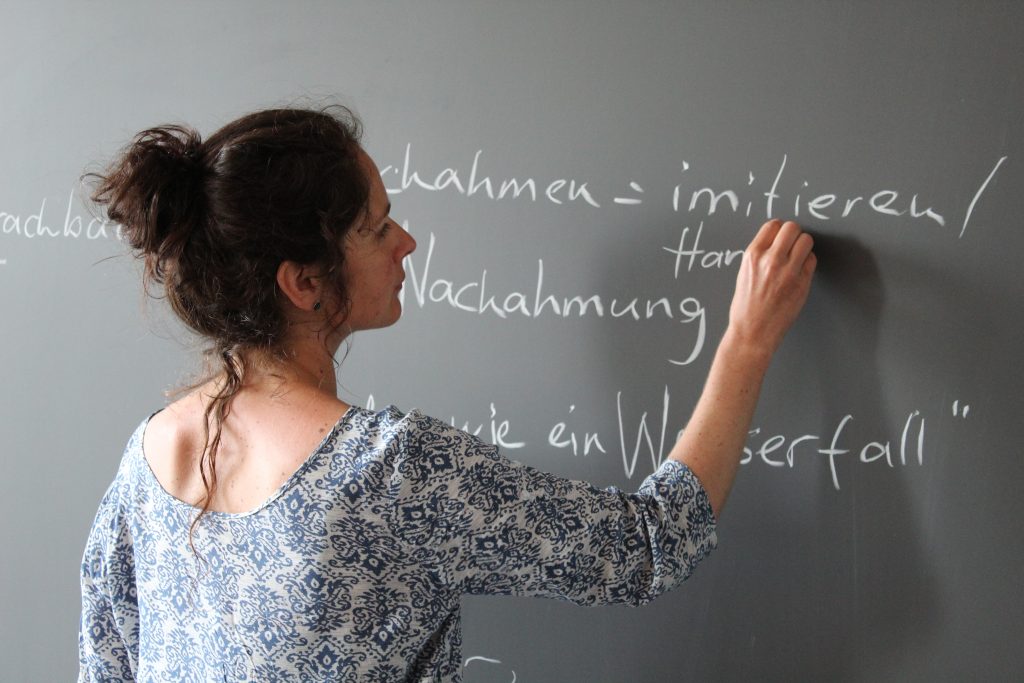
Instructor Irene Sperfeld writes out German vocabulary during a course for language learners at Evangelische Hochschule Dresden. In Germany, language classes for newcomers are paid for by the state. Photo by Cassandra Bassler for NENC
Germany’s leader Angela Merkel has been spending tax dollars to house and educate more than 1 million asylum-seekers from places like Syria and Iraq. And that’s made a lot of Germans unhappy: a far-right, anti-immigrant party fared better than expected in this past week’s election.
Cassandra Basler from member station WSHU has been covering immigration to New England for our Facing Change project, and recently traveled to Germany to look at the challenges facing immigrants and the places that host them.
Of Beer and Clocks
It’s Octoberfest time, and the craft beer industry in New England has plenty to raise a glass to. Craft beer is growing faster here than anywhere in the country.
But is growing too fast? Is it possible to have too much craft beer? Tom Verde went to find out.
In the mid-1800s, New England was a global center for the clockmaking industry. Today, the region is filled with antique, often centuries-old clocks — in church steeples, libraries, courthouses, and homes.
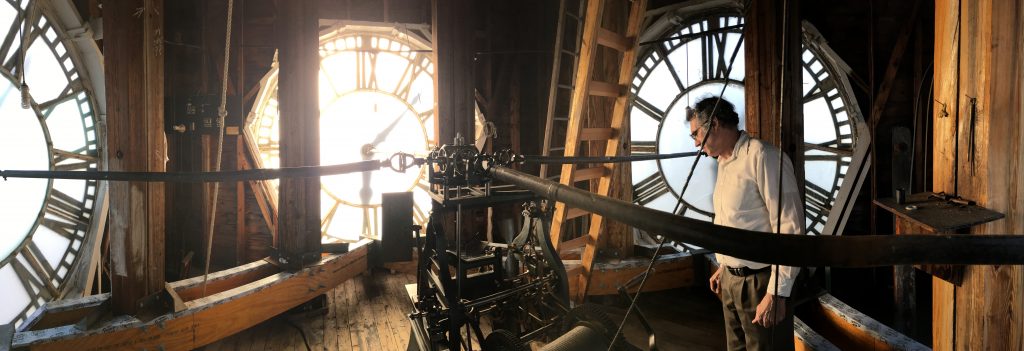
Master clockmaker James Roberts examines a churchtower clock in Redding, Mass. The timepiece in the center connects to four transparent glass dials, one on each wall.
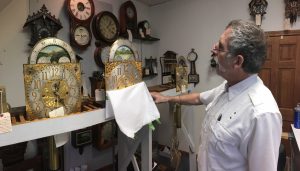
David Roberts with a clock face and dial that he and his brother James restored. Photo by Dan Richards for NEXT.
That industry, of course, is long gone. And slowly, the people who preserve its artifacts are disappearing, too. Dan Richards has the story.
About NEXT
NEXT is produced at WNPR.
Host: John Dankosky
Producer: Andrea Muraskin
Executive Producer: Catie Talarski
Contributors to this episode: Ryan Caron King, Jill Kaufman, Britta Greene, Cassandra Basler, Tom Verde, and Dan Richards
Music: Todd Merrell, “New England” by Goodnight Blue Moon, “Unsquare Dance” by Dave Brubeck, “Beer Barrel Polka” by Orchestra Will Glahé
We appreciate your feedback! Send praise, critique, suggestions, questions, story leads, and scraps of precious metals to next@wnpr.org.

